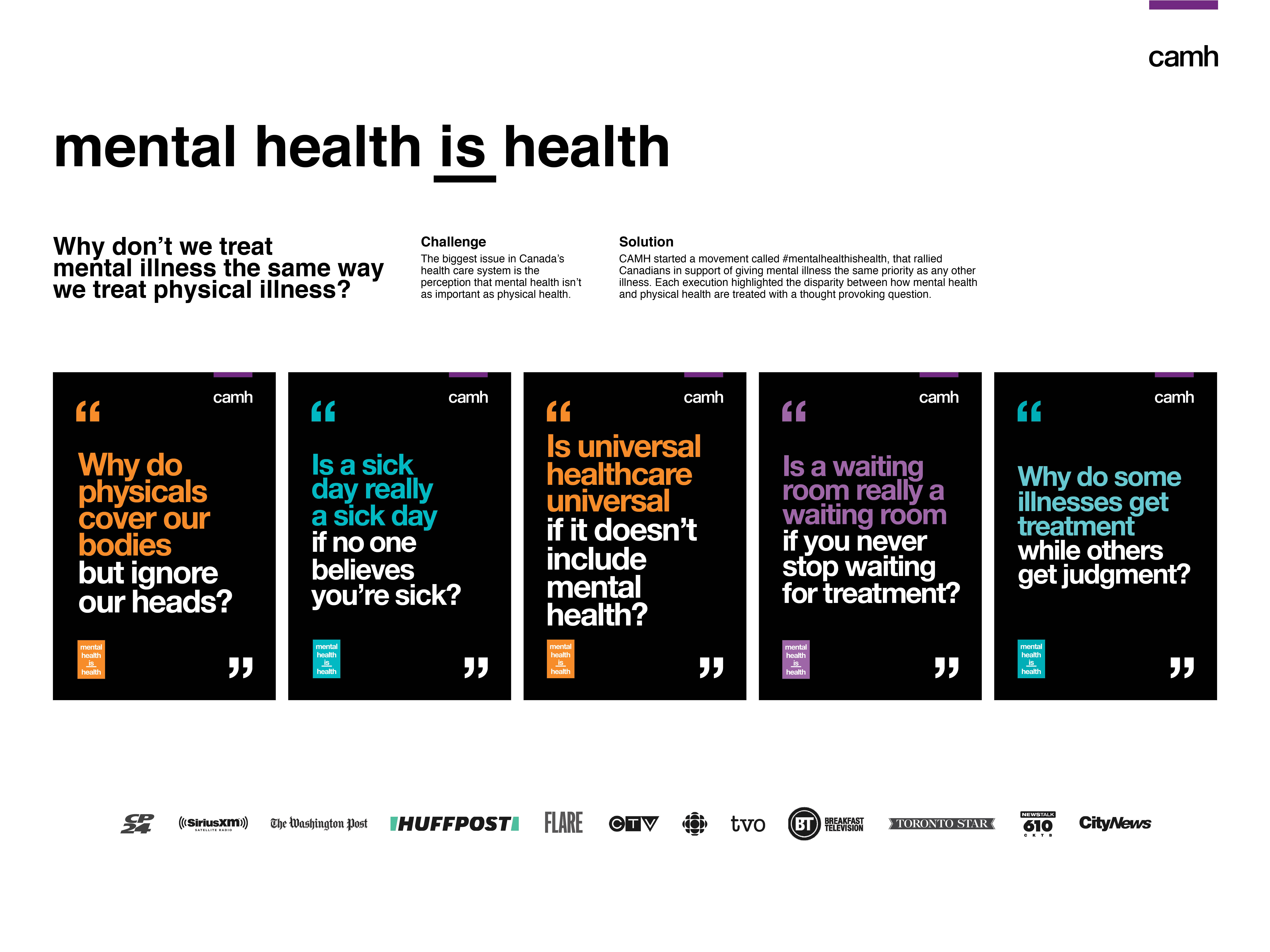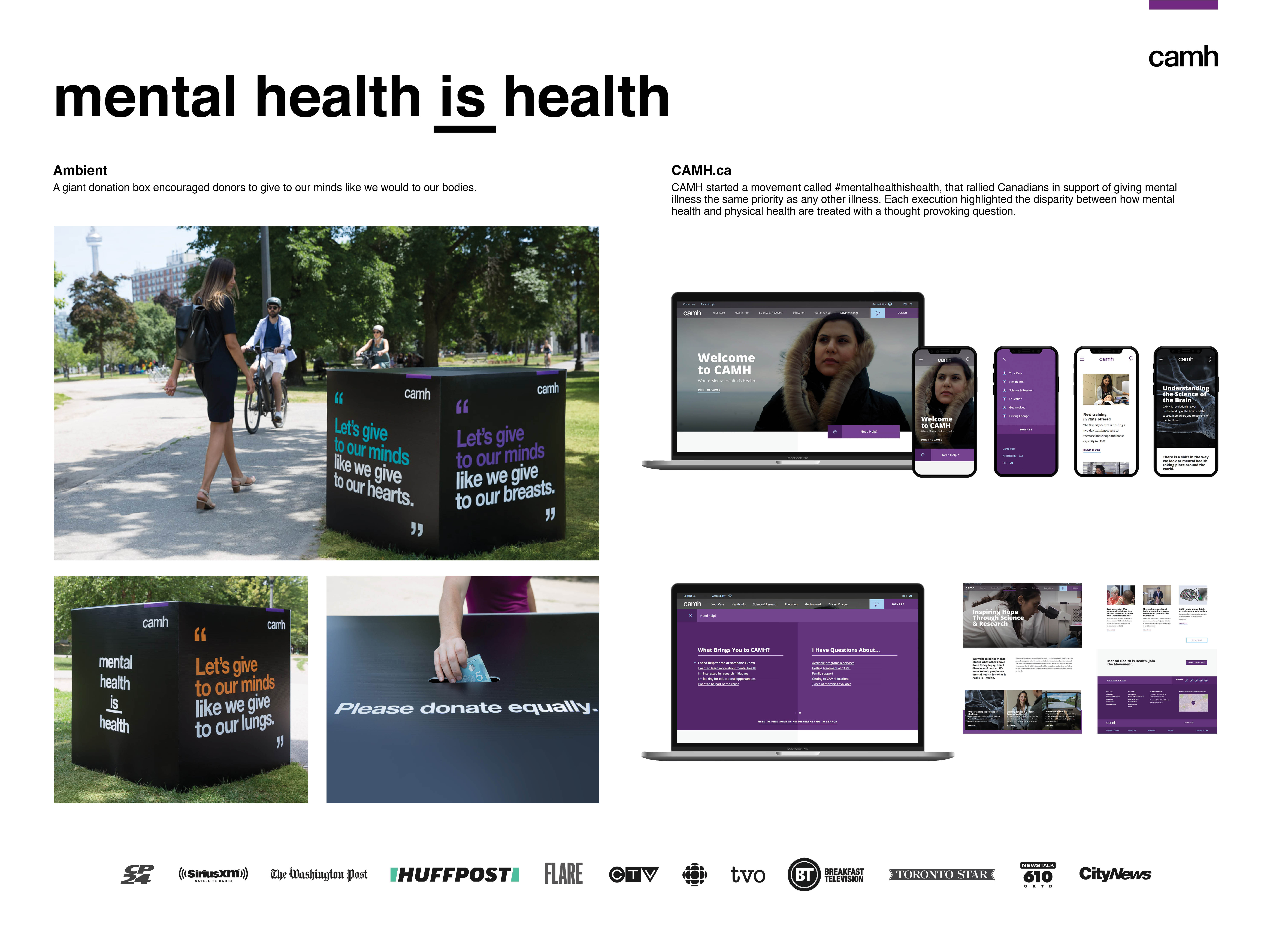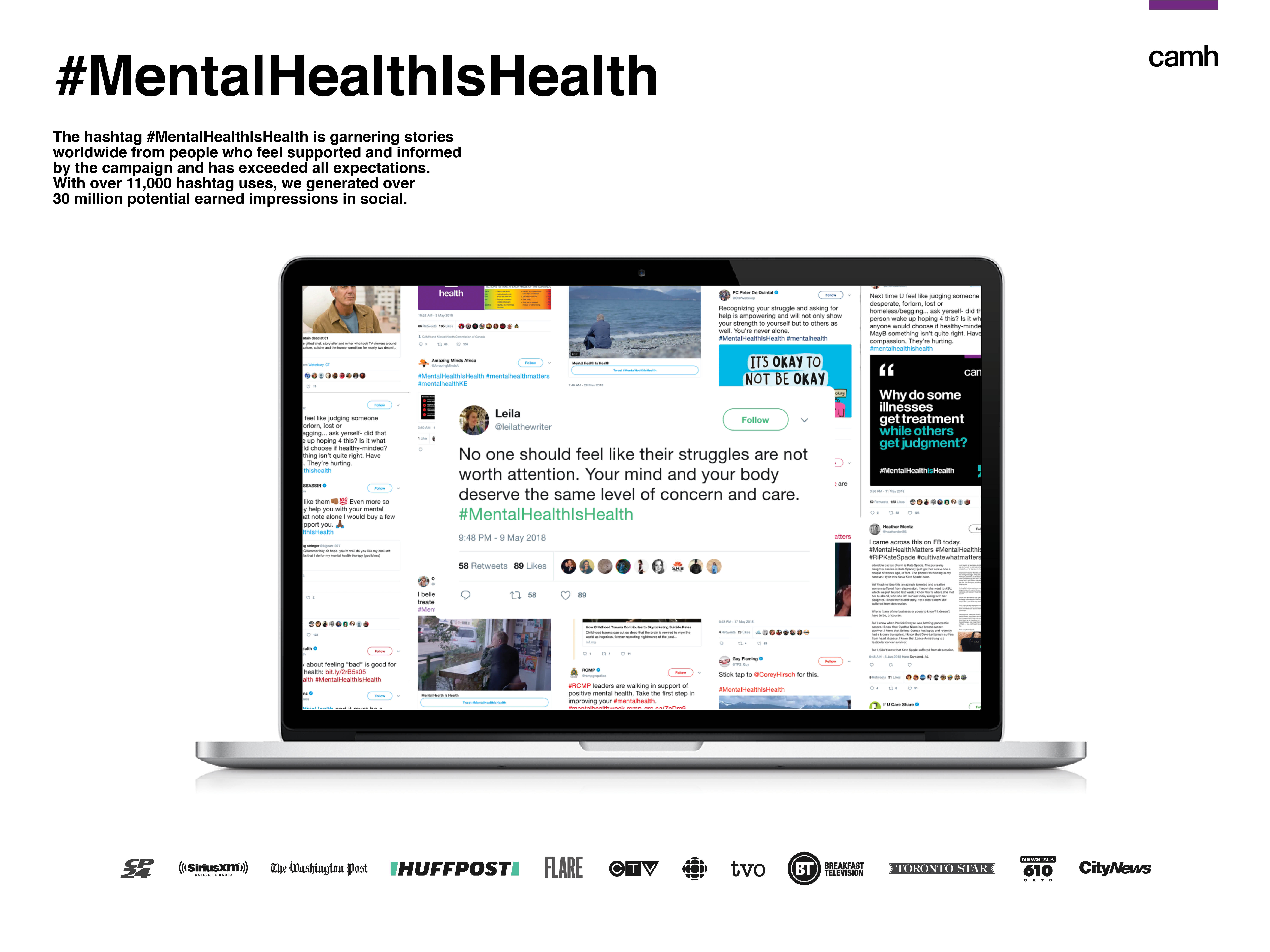2018 Winner
Mental Health is Health
CAMH
Bronze AOY: Zulu Alpha Kilo
CAMH
Mental Health is Health
The Challenge
Illness is a universal phenomenon. Regardless of culture, class or age, it’s understood as a cause for help and empathy. Yet all that understanding disappears the moment the word “mental” precedes the word “illness”. Stigma replaces concern, and marginalization replaces treatment. Even if this affected a small number of people it would be unacceptable, but with 1 in 2 Canadians experiencing some form of mental illness by age 40, it’s all the more troubling. The Centre for Addiction and Mental Health (CAMH) is Canada's largest mental health teaching hospital and is globally recognized as being at the forefront of ground-breaking developments. As an outspoken advocate for people living with mental illness, CAMH’s objective is as daunting as it is humane: to create a paradigm-shifting societal movement that changes the discriminatory Canadian mindset towards mental illness.
The Insight
Research confirmed that despite its pervasiveness, fewer than 50% of Canadians view mental illness as personally relevant. Even more pointedly, they don't see it as a legitimate disease requiring medical treatment. No other illnesses face this challenge. No cancer patient would have to fight stigma as well as disease, and no one with a broken leg would be considered weak for needing a cast to heal. That attitude is more than unfortunate – it’s unjust. Lives are diminished and even lost because people are too ashamed to ask for help. The medical legitimacy of mental illness is undermined by the belief that weakness/laziness is the true cause of the issue, putting barriers in the way of people who deserve empathy and help, not judgment. A perspective shared by a doctor at CAMH illuminated the impact of society’s destructive attitudes and became the campaign’s core insight: “Stigma is a nice way of saying prejudice.” Just like all prejudices, the first step in tackling it is calling it out to make people acknowledge it.
The plan
To challenge deep-seated beliefs, the brand chose a bold, declarative approach in stark contrast to the quiet, whispered tones usually associated with mental illness. Provocative billboards and transit shelters posed pointed questions such as, “Why do some illnesses get treatment but others get judgment?” and “Why do physicals cover our bodies but ignore our heads?” Those were complemented with simple executions declaring “Mental health is health” to establish the legitimacy of mental ailments, and the necessity of including mental wellbeing in our definition of overall health.
A branded content series featured harrowing stories of Canadians who experienced the gaps between society’s views of physical and mental illness. One woman shares the story of receiving less support for her mental illness than for three bouts with cancer, while retired NHL goaltender Corey Hirsch opens up about his debilitating struggles during the heights of his NHL career. A video execution that ran on television and social prompted viewers to recognize their own assumptions by depicting intense physical symptoms that are in fact caused by mental illness. A core campaign element was the #MentalHealthIsHealth hashtag. It has focused attention around the cause and encouraged the spread of the conversation online. The launch coincided with Mental Health Week, and with a completely revamped CAMH website. That important element ensured that people seeking help were quickly directed to the resources they needed.
The Results
The campaign has brought mental health advocacy to the attention of Canada. After only weeks in market, it’s had measurable impact on outdated perceptions and has enhanced people’s understanding of the quality and importance of CAMH’s work. Tracking confirms statistically significant lifts against key campaign metrics. The perception “Mental health is a key component of a person's overall health” grew from 77% to 86%. The message “Friends and family have been more candid about expressing their mental health issues” grew from 53% to 71%. “I am hearing more about mental health than I used to” grew from 69% to 82%.
The hashtag #MentalHealthIsHealth is garnering stories worldwide from people who feel supported and informed by the campaign and has exceeded all expectations. With over 11,000 hashtag uses, the brand generated over 30 million potential earned impressions in social. Combined with an 89% positive social sentiment, it lead the charity category in positive social conversation. The campaign was profiled by CTV, CBC, Huffpost, Toronto Star, City News, and others, creating even more earned media. The Difference Makers gala, a CAMH Foundation initiative that introduced the campaign to VIP donors, raised over $2 million in donations in a single night. Online donations increased 41% percent during the campaign period.



